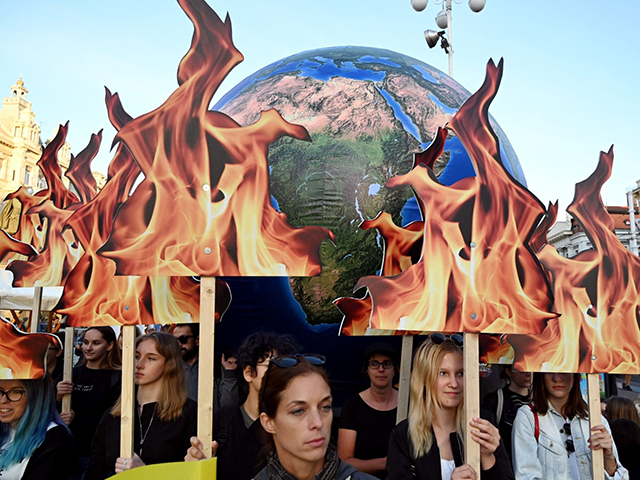Climate alarmists’ overwrought accounts of hot summer weather are “fueling mental derangements,” writes the Wall Street Journal’s Allysia Finley in a searing op-ed Monday.
It is not the weather itself, but the hyperbolic way it is reported that spreads panic, Finley insists, since in the past “heat waves were treated as a normal part of summer,” whereas now they are treated as harbingers of an impending climate apocalypse.
Knowingly or not, mainstream media have been complicit in spreading “climate hypochondria,” she writes, which simply does not match the reality of what is happening to the weather and the threats this may or may not pose.
“It isn’t difficult to notice that today’s snowflakes consider hot weather aberrant, similar to how they perceive normal feelings such as anxiety or sadness,” Finley asserts. “But there’s nothing normal about climate anxiety, despite the left’s claims to the contrary.”
Daily data back up Finley’s contentions. On Sunday, The Messenger reported that given the summer’s extreme heat, “we may not live to see climate’s ‘new normal.’” The article goes on to make the scientifically untenable claim that “thousands of deaths” from excessive July heat “can be attributed to human emissions of greenhouse gases.”
The article also repeats warnings of a climate “tipping point” beyond which humanity is doomed, a proposal that further stokes the climate hysteria underscored by Finley.
During a local telecast, Florida meteorologist Steve MacLaughlin uttered a similar threat, assuring viewers he fears we “have reached a point we cannot return from.”
“This is the first time that I’ve been overly concerned that we have reached a point we cannot return from,” MacLaughlin said in a weather report for NBC6 South Florida.
“In 25 years of broadcasting, I’ve never uttered these words on TV before,” the five-time Emmy-winning reporter wrote on Twitter. “I try to stay positive. I report on not just the problem, but the solution. I try to not be alarmist. But with corals, sirens should be blaring.”
Meanwhile, on Monday the Washington Post declared that the world is “boiling,” echoing breathless predictions from U.N. Secretary General António Guterres, who stated last Thursday that “the era of global boiling has arrived.”
The once-sober Associated Press joined in the melee, reporting Monday that as climate change produces hotter and longer heat waves, air conditioning “is now a matter of survival.”
Most people can read these reports and take them with a grain of salt, mentally toning down the obvious hyperbole and exercising critical thinking to form an objective opinion of the situation. They may consider, for instance, that many more people die each year from cold weather than from heat, or that globally fewer and fewer people die every year from weather-related events.
The problem, Finley suggests, is for those who are swept along by the alarmism, allowing themselves to be overwhelmed by irrational fear from prophecies of a rapidly imploding world.
“Climate hypochondriacs deserve to be treated with compassion, much like anyone who suffers from mental illness,” she concludes. “They shouldn’t, however, expect everyone else to enable their neuroses.”

COMMENTS
Please let us know if you're having issues with commenting.